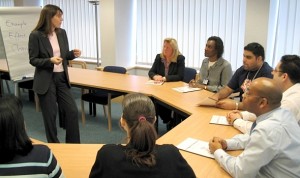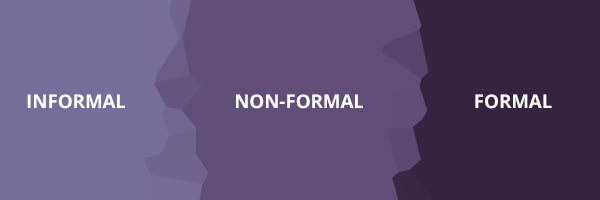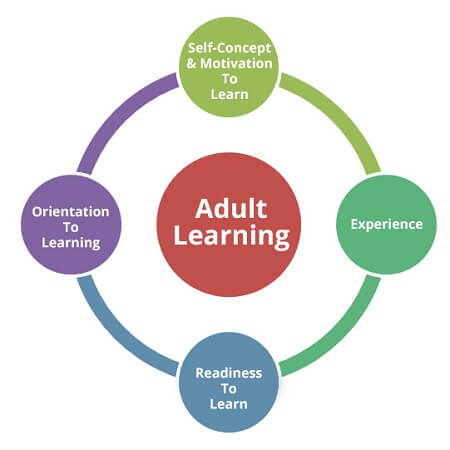Adult education is the provision of guided learning events for adults who might have had a working experience after the termination or interruption of their education in the regular education system.
In a broad sense, it is any form of learning that adults partake beyond the conventional schooling.
In a narrow sense, it is about literacy – adults gaining the basic ability to read and write.
Therefore, adult education is a sweeping concept that encompasses everything starting from basic literacy to personal achievement as a lifelong scholar, even the acquiring of advanced degrees.
Each state in U.S.A has an obligation to address the basic education of its citizens.
Official state websites are available to direct people to programs, classes, and organizations geared to impart knowledge to adults on how to read documents like maps and catalog, prose and how to make simple computations.
Adults that complete the basic adult education get the opportunity to take the General Educational Development test so as to earn the equivalent of a high school diploma.
Anybody who is engaged in any of the following is engaged in adult education:
Article Table of Contents
Who Is Engaged In Adult Education?
- Returning to college to finish a degree
- Going to college for the first time after the age of 25
- Working toward a graduate degree
- Earning CEUs for professional certification
- Learning a technical skill
- And even taking classes at a local community college just for the fun of it.
Therefore, adult education can be in any of these three contexts:
In What Context Can Adult Education Be?
- Formal structured learning which happens in an education or training education, normally with a prescribed curriculum. Learners are awarded credentials.
- Non-formal learning which is organized by educational institutions but does not have credentials. Non-formal learning opportunities are sometimes provided in the workplace through the activities of civil society groups.
- Informal education is learning that goes on continually from daily activities related to work, community, family, or leisure.
Though the purpose for seeking adult education may vary per person, the common reasons why adults seek education are: vocational, social, recreational and self-development.
Best Adult Education Programs
The best adult education programs is the one that manipulates adults’ unique learning needs and attitudes to formulate customized programs that foster the learner’s growth and development.
The practice of adult education is called andragogy.
Therefore, there are seven andragogical attributes of a highly effective adult learning program:
The 7 Attributes:
- The program should be in an environment where the adult learners can feel safe and supported; where their life achievements are appreciated and respected; and where the learner’s needs and uniqueness are honored.
- Should be an environment where intellectual freedom is fostered and experimentation and creativity are encouraged.
- It should be an environment where faculty and the adult learners operate on mutual respect- accept and respect the learners as experienced and intelligent adults whose opinion is worth listening to, appreciating and respecting. In fact, faculty can learn much from the students as the students also learn from them.
- Self-directed learning works best.
- Self-directed learning is where the learners take responsibility for their own learning.
- They work with their instructors or faculty to design individual or unique learning programs which address the learning needs and desires of each student so that the adult learners may perform optimally in their various professions.
- The program should incorporate pacing or intellectual challenge.
- Optimal pacing is the act of challenging people to achieve beyond their present level of ability.
- If the challenge is too big, the learner or subject can give up.
- If the challenge is too easy, the learner becomes bored and learns very little.
- Pacing is like playing tennis with a better player; the challenged player’s skills improve.
- However, if the other player is an indefatigable virtuoso that it becomes impossible to return the ball, the player in the challenge gets overwhelmed and ultimately gives up.
- If the other player, on the other hand, is a novice who can return none of the learner’s balls, the learner learns little, and gives up.
- Adults who experience high levels of intellectual stimulation grow more.
- The adult learners should be actively involved in learning and not just listening to lectures.
- Adults grow more where the instructors and students interact; students try out novel ideas in the workplace; and where exercises and experiences are used to cement facts and theory.
- Students also grow and develop more where there are regular feedback mechanisms for the learners to inform faculty what best works for them and what they desire to learn.
- Faculty should hear and make program alterations based on this feedback.
See Also – How To Choose The Perfect Trade School [ULTIMATE GUIDE]
Safety & General Information for Adult Education Programs
In a learning program where students are not safe, feel insecure, are seen as underlings, life accomplishments are not honored, the students’ self-esteem and confidence is dented significantly.
They regress developmentally.
Students, simply put, take leaps in personal growth where the program is student-centered rather than faculty-centered.
To bolster the claims laid above, observe the English-as-Second-Language classes for new immigrants in the United States.
In a class where the students feel safe, lessons are focused on current language needs, students are asked for input on what helps them most in learning, where students are actively involved in classwork which is interesting and fun, and where there is a lot of mirth and congeniality, students of diverse ages and backgrounds effectively and efficiently learn the English language.
In contrast, classes where students are made to feel inadequate and threatened, little, if any, is learned.
These thoughts are in line with the thinking of Malcolm Knowles, who is recognized as the pioneer of adult education school/learning.
His works state that in the best adult learning programs, where adults get the most out of school, both students and faculty usually have fun and students find it exhilarating to learn.
In any case, an adult learning program is not faced with so many challenges because adults, unlike children, have the internal motivation to learn, know what they want and are ready to overcome any hurdles that come in the learning process.
That is why a great number of adults are enrolling to gain education.
Adults have a choice: they can continue to learn throughout life or they can let their skills and knowledge, if any, slide into obsolescence.
Frequently Asked Questions
What are the principles of adult learning?
People learn differently at different ages.
For adults, learning is: self-directed, experiential with background knowledge, relevant to their life, problem-centered, and the student is motivated to learn.
Understanding these principles can help both teacher and student in the learning process and create an atmosphere for the best learning.
What are the six assumptions of adult learners?
There are six assumptions that are made by adult learners in any teaching setting.
They are the need to know, self-concept, the role of student experiences, ready to learn, orientation to learning, and motivation.
These assumptions are used by education experts, and when they are understood by the teacher, the education is more effective.
What is Master adult education?
A master’s in adult education means you have gone through a program to learn how to teach adults, and that you understand the principles of adult learning.
This is in addition to being educated on the given topic or subject.
A master’s adult education is the additional learning about teaching that goes beyond what the student is learning.
Can adults go to university?
Anyone can go to university.
There may be minimum ages, but there are no maximum ages.
Adults can work towards a degree, or take just one class that they have an interest in.
There are many senior citizens who go to university, and they go for many reasons.
They may go to learn new things or to get a refresher course on things they already have some knowledge about.
What counts as mature student?
When universities talk about mature students, they are generally referring to the age of the student.
A mature student is one who is older than the average student.
The normal time to enter college is after high school and the person is about 18 years old.
A mature student would be over the age of 21 but could be much older.
What are the disadvantages of being a mature student?
Mature students are older than regular students, so it may be a little harder to fit in with everyone else.
The student may feel some isolation because of this.
The student may also be perceived as one who lacks preparation for higher education because they are starting at a later age than normal.
That could cause teachers to treat them differently than other students.



I’m an 8th grade drop out ; I am on disability ; I’m 56 yrs old and I’m trying to get help with a laptop so I can get back into school so I can get my GED and further my education
Adult education program should be established at every level of the federal to the local community, inorder to encourage the iliterate one’s to improve their career prospects.
I am a student of adult education am from Nigeria
SIR HAVEN GONE THROUGH THIS ADULT EDUCATION PROGRAM I AM VERY EXCITED AND INTERESTED BUT I DON’T KNOW HOW TO GO ABOUT IT,PLS I WANT TO KNOW IF THERE IS ANY CENTER IN NIGERIA MY NAME BENJAMIN OGBU I LIVE IN ABUJA NIGERIA THANK YOU.
Iam student from vocation and Technical education from Nigeria katsina state,Daura zone, ingawa LG Area Yandoma word wakai Fulani live in wakai Fulan I interested an adult education .
Iam a student of adult education from Nigeria and i am studying adult education as my
i really enjoy this post.
Sir, I am a graduate in education. I am a citizen of Nigeria and having a mind to start running an adult education programme as tutor/facilitator. I need your counseling. Salisu HALLIRU my name.
Thanks for the information on this. I have a friend who just immigrated to the US with his family. I met him at work. He is in his late 20’s and needs to learn most things you would have learned in High School. I am going to share this with him to help him out. I know it has to be confusing moving to a new country. He has only been here for 3 months.
I AM EXCITED about adult education ,I also wants to make a difference in society by becoming more educated has an adult